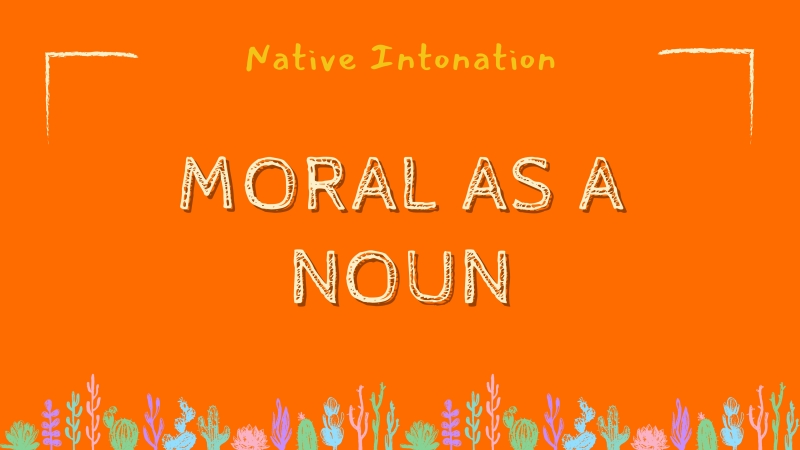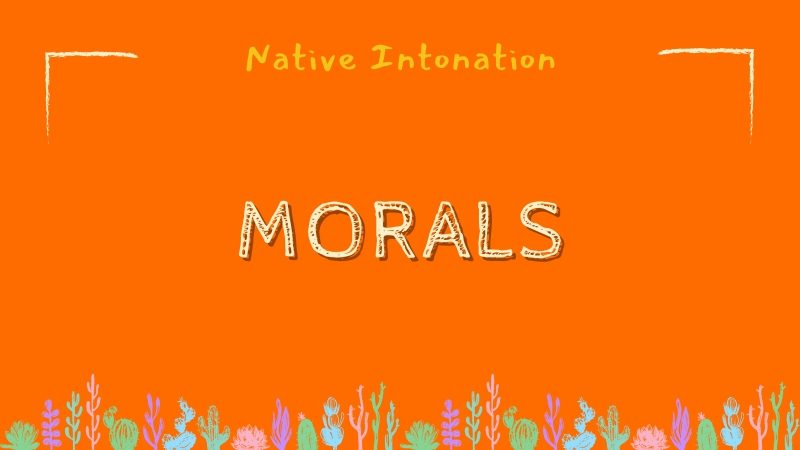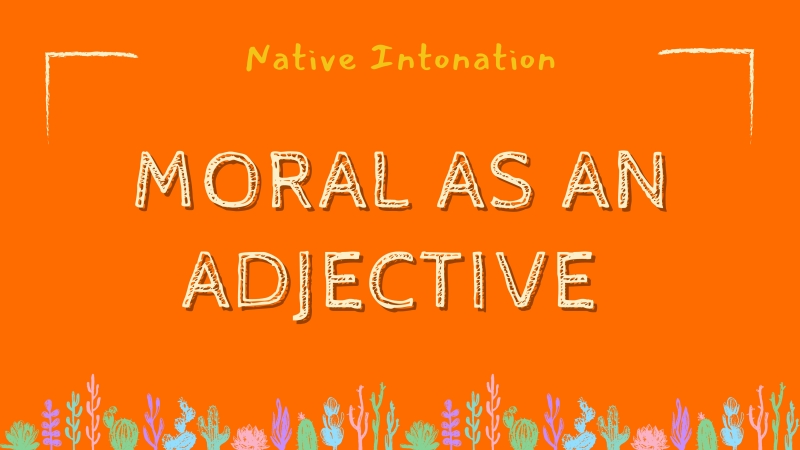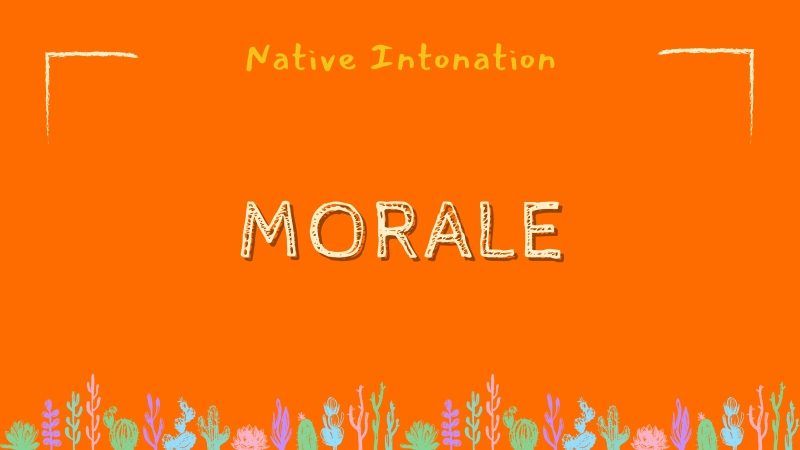When it comes to mastering a language, how a word is pronounced or even a single letter can make a big difference!
While you do your best and strive to write and speak to the highest of your ability, certain words can get in your way and become confusing. Knowing how to differentiate such tricky words will completely scale your English level and allow you to fully develop your skills!
The words ‘Moral' and ‘Morale' are excellent examples of this; they may look and sound very similar. If you know how to use both of them correctly you will be able to communicate more fluently, but if you have no clue about it you will probably make some beginner's mistakes.
So let's get down to business! Check out the substantial differences between these two words and how you can start incorporating them into your vocabulary!
Table of Contents
Moral as a noun

First, let’s talk about moral as a noun. The word moral comes from the Latin word mores, which means conduct or behavior. It is closely related to how each individual acts to be a better person. In other words, it is related to the rights, obligations, benefits to society, equity, or specific virtues that each person has.
Moral is the lesson we learn at the end of a story, that’s why you have probably heard the expression “the moral of the story”. The moral is supposed to teach you how to be a better person throughout the story, which usually has an implicit message about right and wrong, interpersonal relationships, conduct, and how to behave according to social rules.
Generally, the moral is not written in the story but can be easily intuited by the receiver. After hearing a story, we can say, for example:
“The moral of the story is to be humble enough to ask for help”
We could say that even some life situations have a moral, as they teach us how to be better people and how to behave in similar scenarios. Are you one of those who learn from stories or one who learn from experiences?
Morals

Up to this point, you have learned the meaning of the word moral as a noun in singular form! The plural form, morals, has a different meaning though.
Although ‘morals’ is also related to what is right or wrong, it is not about lessons or messages within stories but about the standards each person has to determine good or bad behavior. Morals are strongly related to the principles each person stands for. These principles may come from home and school education, family values, religion, and, of course, the society in which the individual has grown.
When any action goes contrary to these principles, we can say that it is against the morals of the individual.
For example: “I don’t like to drink alcohol before noon, it is against my morals”.
Likewise, when someone does something – no matter how wrong it might be -, he or she is said to have no morals.
“He doesn’t mind taking money from the poor, he has no morals”
This means that morals allow people to discern between what is right and wrong. Whoever is capable of doing anything without caring about its impact on society, is called a person without morals.
Moral as an adjective

Now that we have learned about moral as a noun in its singular and plural form, we can talk about moral as an adjective. Same to moral and morals, the adjective moral is related to ethics too (right and wrong behavior). It is related to the judgment of right and wrong principles in human behavior and the character based on those principles.
Moral is often used in front of words such as responsibility, obligation, and duty.
For example: if you are aware that a crime has been committed, you have a moral obligation to inform the police.
Moral can also be used in many other ways: A teaching about behavior is a moral lesson, a life within the standards of right and wrong is a moral life, and whoever has a sense of what is right and what is wrong has a moral sense, for example.
Morale

As we have learned so far, both moral and morals refer to ethical issues. However, morale is not so much related to the right behavior as it is to the mood and spirit of a person or group of people.
A cheerful and motivated person or group of people has high morale. We could say that if a sports team has high morale, it is more likely to win competitions. Likewise, high morale within a work team is essential to obtain better results and be more productive. On the other hand, if a person or a team is lacking in enthusiasm, confidence, and loyalty, we can say that their morale is poor.
Let’s Sum Up!
The moral is the final teaching of some story that shows you how you should behave in order to do well according to the ethical principles of the world.
These principles about what is right and what is wrong, from each individual’s point of view, are called morals. Morals cause people to act in accordance with what they have learned to be right. A principled individual does nothing against his morals. Whereas an individual who acts regardless of what is right or wrong is a person with no morals.
Moral as an adjective refers to anything related to morals and in line with moral principles. For instance: a moral responsibility, a moral duty, a moral obligation, or a moral lesson.
Morale, on the other hand, doesn’t refer to behavior in accordance with social rulings but to the cheerfulness, enthusiasm, confidence, and loyalty that a person or a group of people can have toward a specific scenario or moment in life.
Mastering these terms will improve your English fluency and allow you to handle important conversations with confidence and better morale!